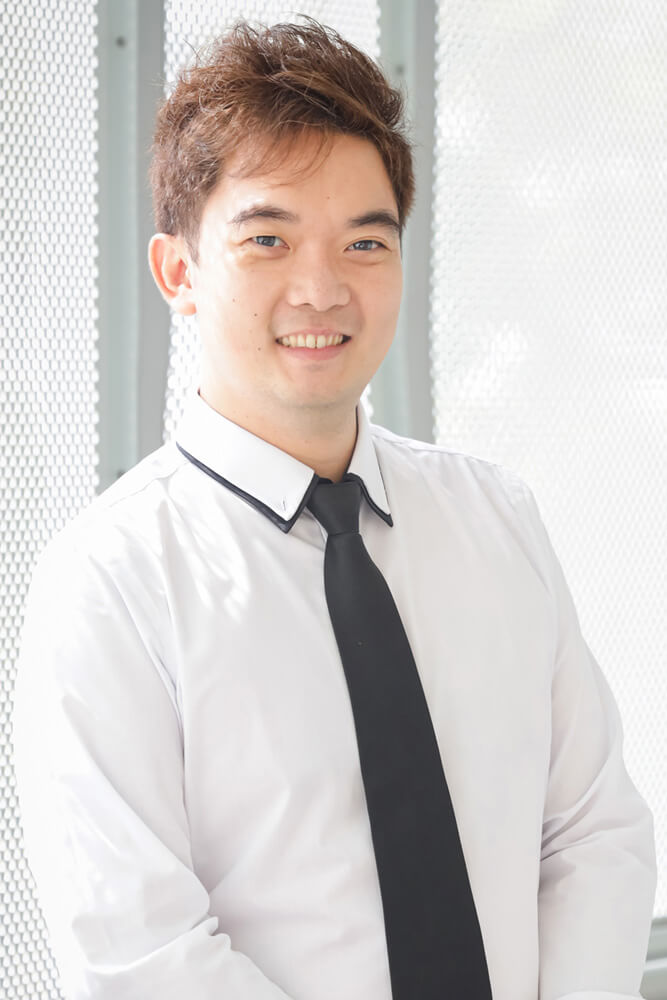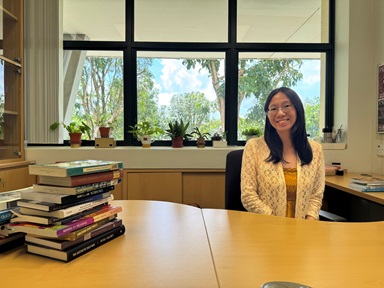Putting Values Into Action
The Nanyang Alumni Awards are presented to distinguished alumni who have attained exemplary achievements in their fields nationally, regionally or internationally, or have contributed significantly to the betterment of NTU, the community or society. NIEWS gets in touch with the three award recipients from NIE to understand what education means to them and their approaches to reinforcing values through education practices.
 | Professor Tan Oon SengNanyang Distinguished Alumni Award Recipient Professor Tan Oon Seng (Class of 2001) is the Director of the Centre for Research in Child Development, and one of only two eminent individuals to have received this year’s Nanyang Distinguished Alumni Award — the highest honour to be bestowed on NTU alumni. Professor Tan is no stranger to most of us, having served previously as Director of NIE, where he played a significant role to enhance teacher education and elevate the image and professionalism of teachers in Singapore. During this time, Professor Tan actively advocated for investment in early childhood education. Under his leadership, the Centre for Research in Child Development was established, creating a much-needed platform for the investigation and development of evidence-based research geared towards early childhood education. Over an illustrious 40-year career, he had moved through the ranks from teaching students to teaching teachers, and subsequently shaping leadership and policies that would help people learn best for the future. He is perhaps best known as well, for the priority he continues to place on character development and values education. |
"I am grateful to NTU for recognising my contributions to the field of education and teacher education. I have always considered myself a teacher, and so I would like to share this honour with all fellow teachers and teacher educators who play a vital role in nurturing our next generation and hence influencing the future of our society. In many ways, this honour affirms teachers and teacher educators that their calling and service are valued by key establishments and in this case NTU, a forward-looking and top research university. I have always believed that everyone has a God-given talent and higher calling in life than just the work we are doing. I am convinced that we will find greater joy in our work by learning to ‘abound and abase’, and by discovering and using our capabilities and interests to serve others. Positions are not so important; it is better to truly contribute and to be humble to learn and be faithful stewards. Expectations and opportunities may change our circumstances, but for me, it is the desire to help people learn and to inspire learning that has kept me going throughout a long career. Looking back some 40 years, I am very thankful for all the different stages of my career and contributions. My time at the polytechnic was very meaningful, because I grew with a community of highly passionate educators who came from industry, and I will never forget our teaching journey together or the legacy of staff development and learning innovation that we left behind. My proudest and most exciting years were of course with NIE, where I was able to oversee and establish many major teacher education milestones during six and four very purposeful years as a Dean of Education and NIE Director respectively. These included the NIE Global Exchange Programme, NTU-NIE Teaching Scholars Programme, and the introduction of international practicums. With the strong support of my NIE colleagues, who worked with me to transform NIE, the Institute propelled to international prominence. We have been humbled by the global attention and the countless delegations of ministers and international leaders who came to NIE to learn about our Teacher Education Model for the 21st Century (TE21) and Singapore’s success as a high-performing education system. I was also proud to be able to share our teacher education policies and practices with the world at influential platforms. I must acknowledge the influence of Dr Ruth Wong (founding principal of Teachers’ Training College) and our former Prime Minister Mr Lee Kuan Yew in shaping my vision of education. To me, the goal of education is defined by character and competence. Education must first nurture character, which lays the foundation for life and resilience to climb any learning curve. Secondly, education must be highly adaptive to building the competences required of the times. Character is caught and not just taught and is best learned by modelling. The feeling of competence comes before competence, and so we need to instil confidence through rigorous intellectual pursuit in an encouraging environment. Many colleagues know that I like to emphasise values in teacher education. The most important value for teachers is to care for the learner. Whenever I have a chance to speak about the Singapore education system, I have always highlighted one thing: Values. When at work, I am always most interested in the real purpose and larger picture of things. Outside of work, I enjoy being involved in humanitarian projects that could sometimes bring me to ‘dangerous’ situations! For example, I recently found myself at a refugee border for minority tribes while helping orphans whose parents had been killed in a military attack." | |
 | Dr Bernard RicardoNanyang Outstanding Young Alumni (OYA) Award Recipient The Nanyang Outstanding Young Alumni (OYA) Award is presented to alumni who excel and are highly recognised in their fields. With the age eligibility capped at 40 years, Dr Bernard Ricardo (Class of 2020) was one of this year’s winners. The Senior Consultant with the NUS High School of Mathematics and Science has been inspiring future scientists by mentoring and encouraging them to collaborate with him in his physics and education research. |
"It is often said, ‘find a job you enjoy doing, and you will never have to work a day in your life’. I fell in love with impacting the younger generations since my NTU days. Hence, it has been fulfilling to be able to work in a high school, where I can see my students’ potential unleashed. Through activities such as coaching the Singapore Physics Olympiad Team, as well as sharing my perspectives, experiences, values, habits and passion with students, I have been able to make a difference in people’s lives. The Nanyang OYA Award has been a huge honour and a strong affirmation that this indeed is my place and calling. Apart from teaching, I often find myself taking care of students’ well-being and socio-emotional needs while mentoring and advising them. Upon gaining research skills from my PhD programme at NIE, I was able to coach my students in physics and education research, grooming them into confident young scientists and researchers. The experience has indeed been fruitful, as some of them have published their research findings in international scientific journals, while another has published physics books together with me! I have learnt a lot of important lessons as a mentor, the first being the value of lifelong learning. It is nearly impossible to inspire others to learn if I myself am reluctant to learn. Secondly, attitude determines altitude. When we do not have the right attitude towards our vocation, we will never go far in life. As mentors we often complain about having no time for personal development. In reality, the role of mentoring is in itself a form of personal development. Thirdly, people don’t care how much you know until they know how much you care. Mentoring and teaching go beyond imparting knowledge, as students can sense if their mentors and teachers genuinely care for their growth and well-being. Thus, education is the training ground for students to face the real world. Personally, I believe it is more crucial to develop skills beyond acquiring knowledge. True education should sharpen our values and skills to acquire new knowledge, manage time, work under pressure, collaborate with others, think critically, and come out with the best strategy to solve a problem. In today’s world, there is a huge demand for Math and Science graduates, not because of the knowledge they have acquired in school, but because of the values they have. These include excellence in planning and executing a task, constant wonderment and curiosity towards new things, and rigorousness and accuracy in analysing a situation. Believe it or not, students learn more through observation than through textbooks. Thus, for educators, the best approach to reinforcing values is to be a good role model!" | |
 | Mr Ng Jia Jun JustinNanyang Alumni Service Award Recipient The Nanyang Alumni Service Award recognises the dedication of alumni whose dedication and volunteer commitments through alumni clubs/associations/NTU programmes have significantly enriched the University. Mr Ng Jia Jun Justin (Class of 2015), Senior Manager at Polytechnic and ITE Policy Branch, Higher Education Policy Division, MOE, was one of this year’s award recipients. |
"This award has reaffirmed the strong passion and commitment I still possess for the university, and spurred me to continue to give back to NIE as long as I am able to. Through my involvement as Vice President of the NTU NIE Alumni Association, I seek to engage with and add value to the lives of NIE alumni — be it through webinars for knowledge sharing, or networking sessions that allow us to form new friendships and reconnect with old acquaintances. I also reach out to current NIE student teachers by sharing my experiences as an educator and giving them tips for their practicum. As I spent the best four years of my life at NTU as an NIE undergraduate, I am greatly motivated to give back so that others can experience the same (and hopefully give back as well!) Being involved in the alumni activities, I have come to realise how diverse our student population is. In fact, I find myself learning from people of all walks of life and from around the world. It has been a real privilege interacting with fellow teachers from different backgrounds to gain insights into their perspectives. I see education as a social leveller, and my experiences and beginnings as a classroom teacher in a neighbourhood school have reinforced that. As teachers, we do our best to educate students so that they can do better than our generation, but we must not forget to support and uplift those who fall behind. I feel that values are best learnt in authentic situations, and not from PowerPoint slides. To teach empathy, for example, I remember how my previous school would partner with community organisations to expose students to the plight of families living in rental flats. Over the course of a semester, the students helped to paint, refurbish and clean up the homes and interact with the residents. The experience nudged them to appreciate what they have as they realised that others had so little. It truly opened their eyes to a world that they failed to see." | |
Click here for the citations of the winners and full details of the Nanyang Alumni Awards.
This article was originally published in NIEWS #122.


.tmb-listing.jpg?Culture=en&sfvrsn=4e7824a_1)

.tmb-listing.jpg?Culture=en&sfvrsn=a7db34c2_1)


